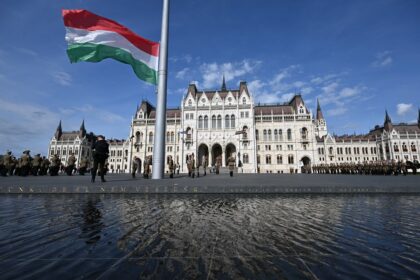The article discusses the growing reliance of Hungary and Slovakia on Russian nuclear fuel, despite having signed alternative supply deals with Western companies. The report highlights that both countries continue to receive significant volumes from Rosatom, the Russian state-owned energy company.
Key points mentioned in the article:
* Hungarian and Slovakian imports of Russian nuclear fuel increased by 105% in 2024 compared to 2021.
* Slovakia’s imports rose sharply by 229% in 2024, while Hungary’s imports declined slightly.
* The Paks II nuclear project in Hungary, led by Rosatom, is a long-term strategic risk that locks Hungary into Russian influence for decades.
* The report notes that the contract details for Paks II are classified, and oversight is minimal, describing the entire project as lacking transparency.
The article also mentions that there are no technical barriers to replacing Russian oil via the Adria pipeline from Croatia, which has a proven annual capacity of 14.4 million tonnes.
Recommendations made by the report include:
1. Terminating crude oil import exemptions under Regulation 833/2014 by June 30, 2025.
2. Ending the loophole allowing oil product exports derived from Russian crude.
3. Auditing and enforcing transparent pricing in the Adria pipeline to dispel Hungary’s cost-related claims.
4. Imposing full traceability of oil and gas origin.
5. Sanctioning Rosatom and all subsidiaries to reduce nuclear dependence.
6. Investigating MOL’s role in prolonging dependency through the European Anti-Fraud Office (OLAF).
Overall, the report emphasizes that continued exemptions and reliance on Russian energy sources serve no technical or economic rationale and must be ended to protect European energy security, reduce Kremlin revenues, and restore EU sanctions integrity.












